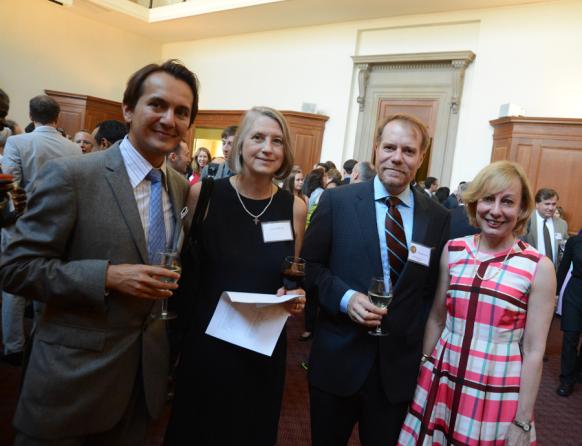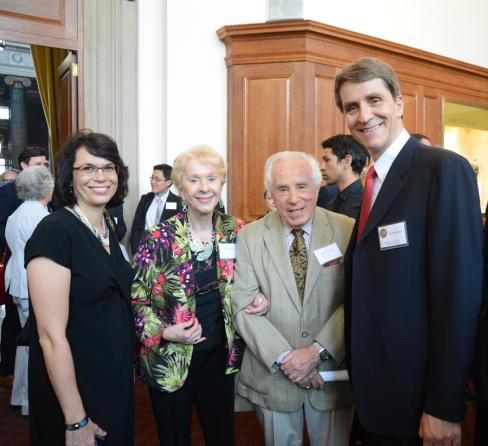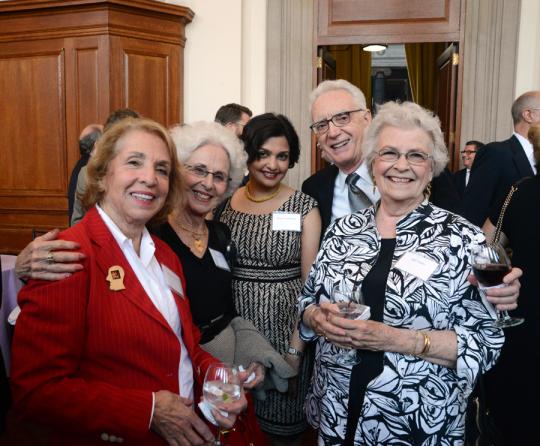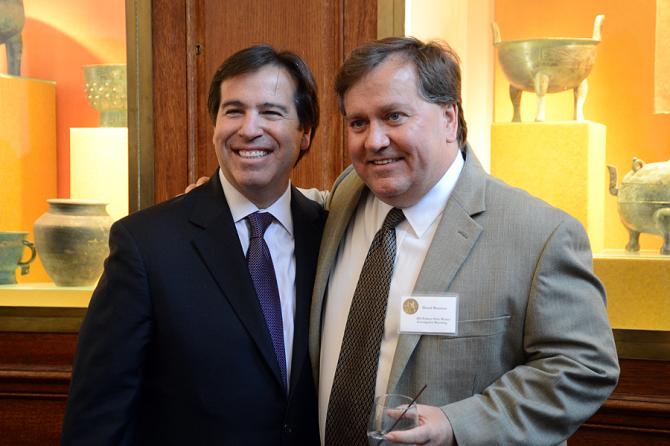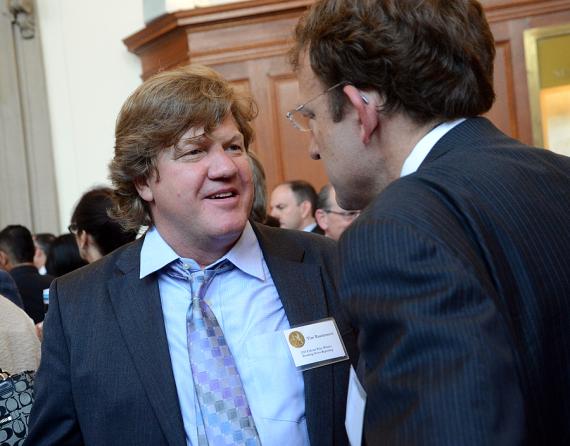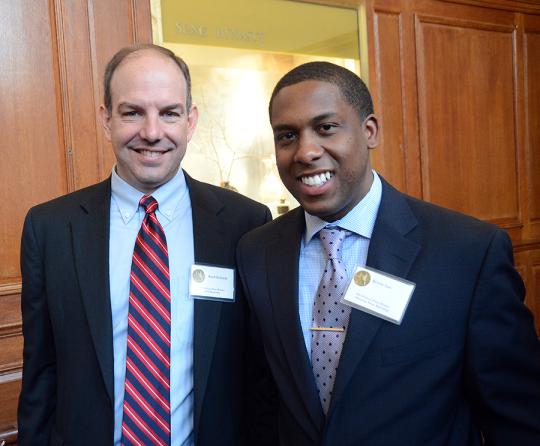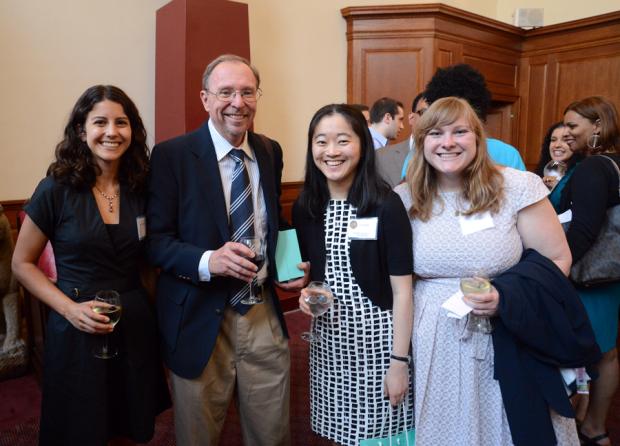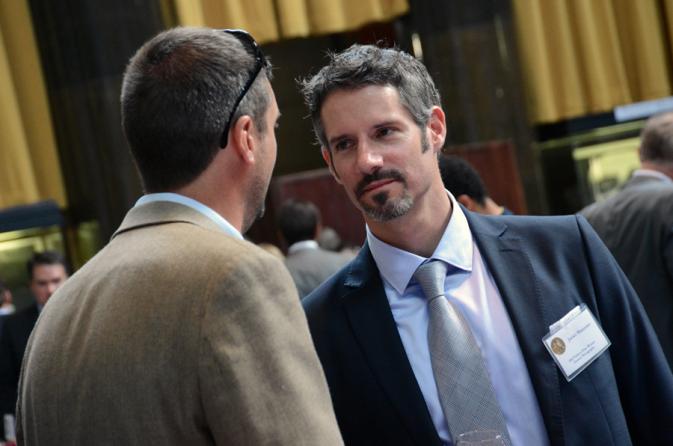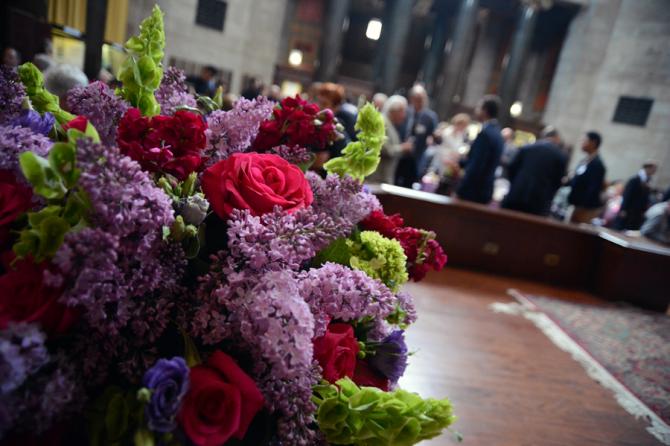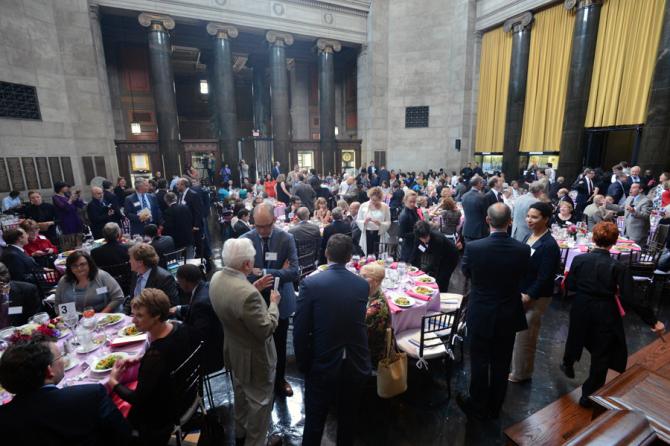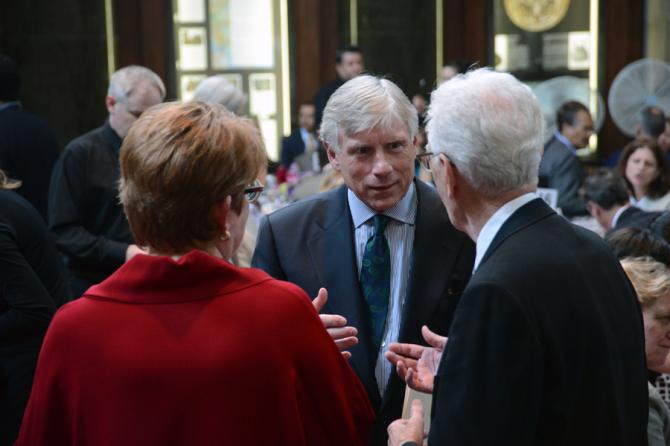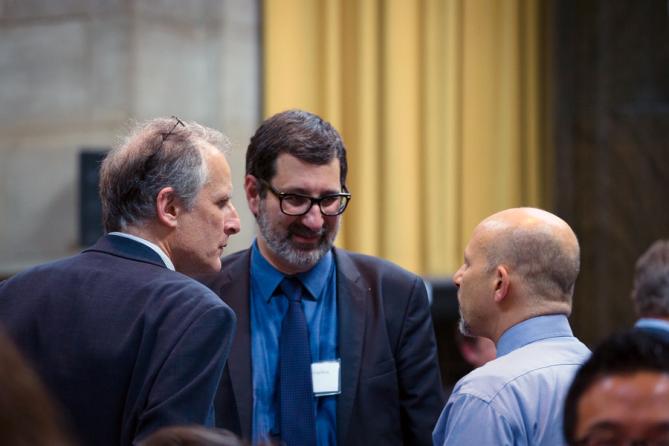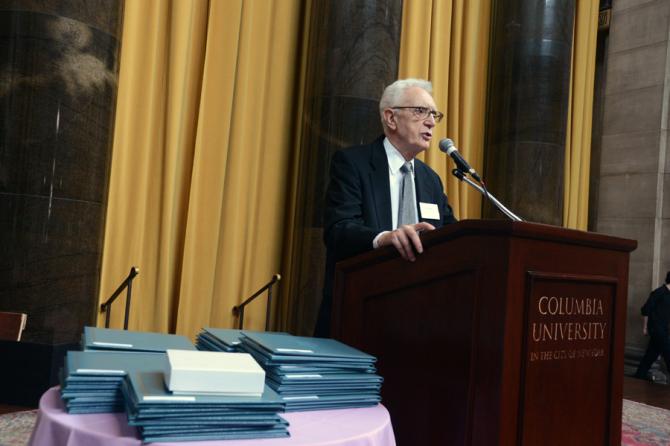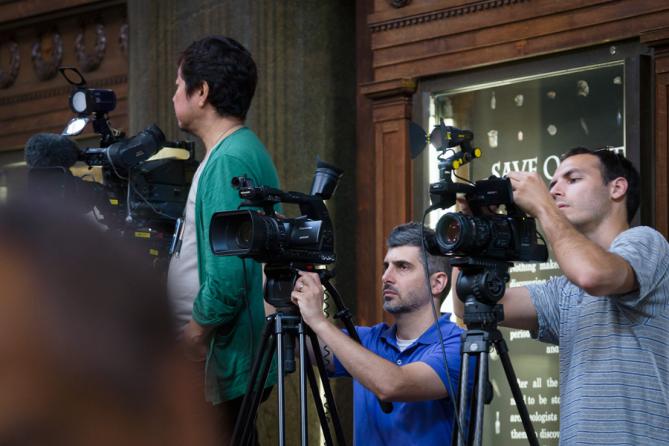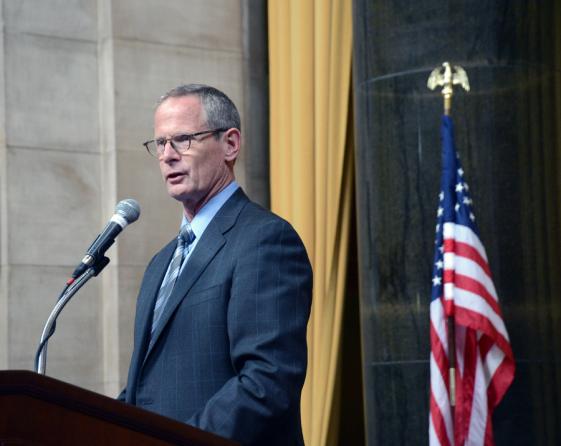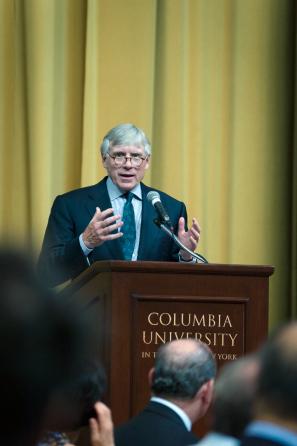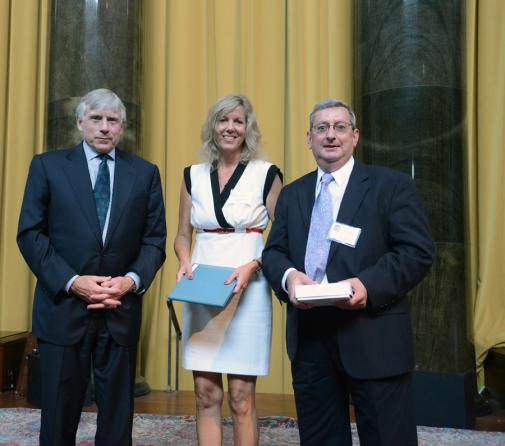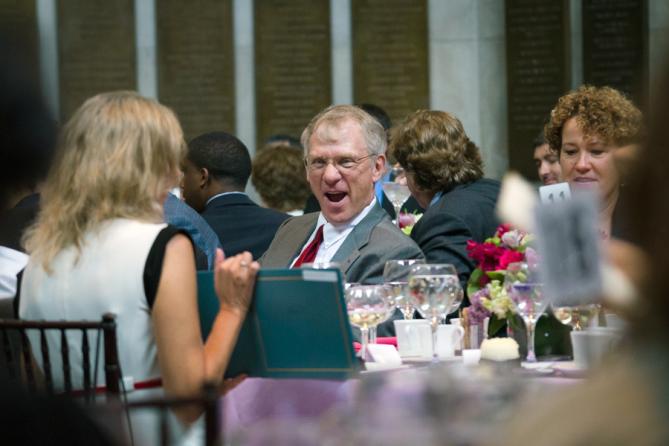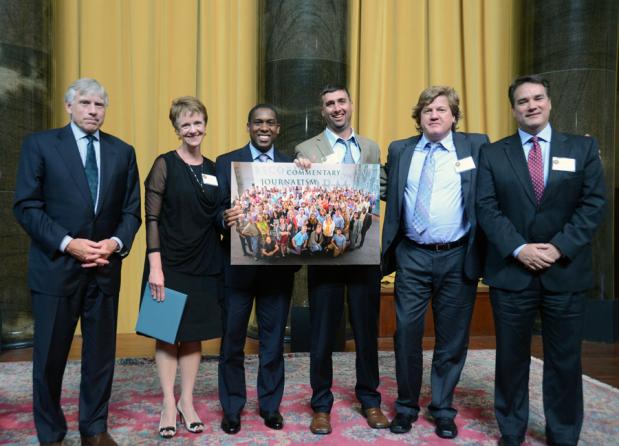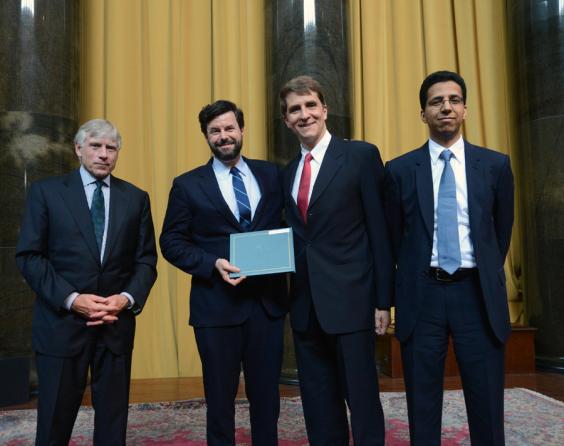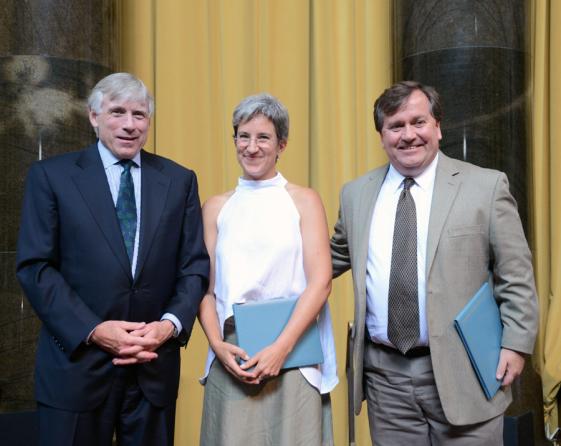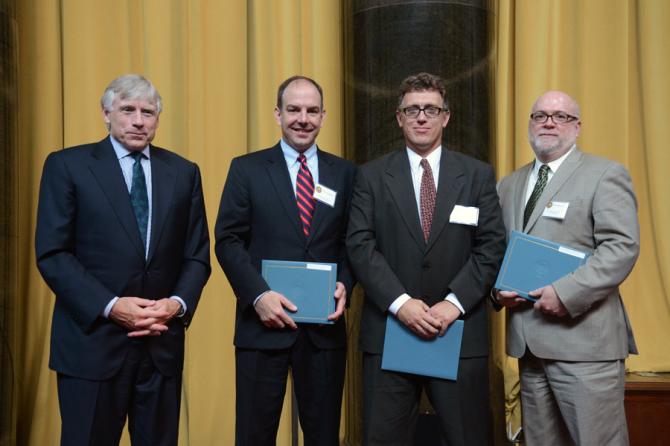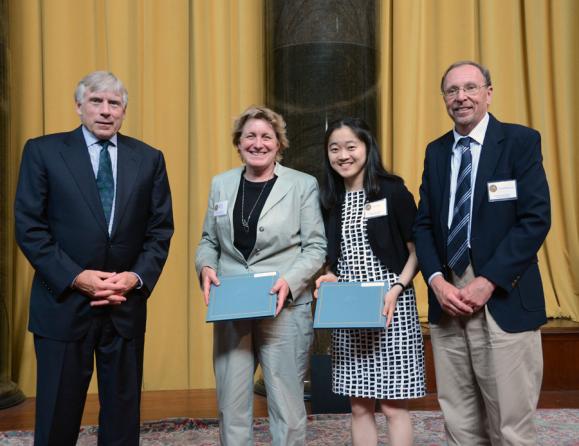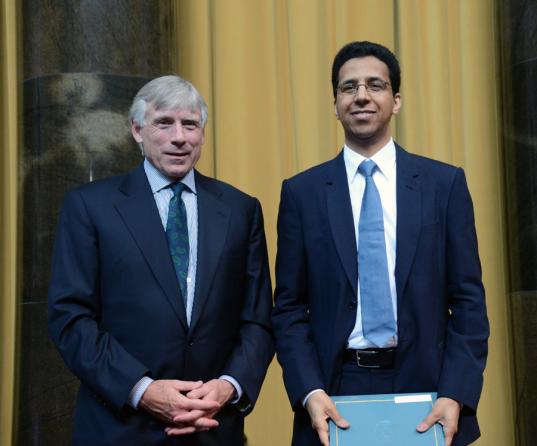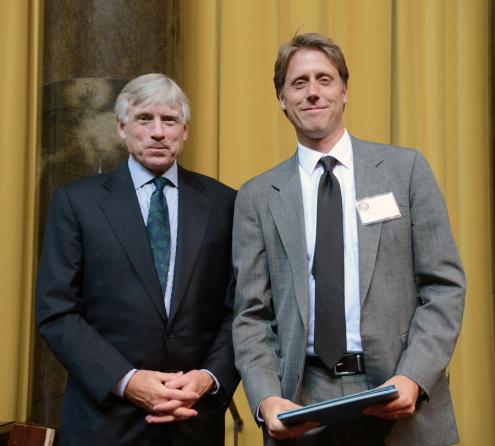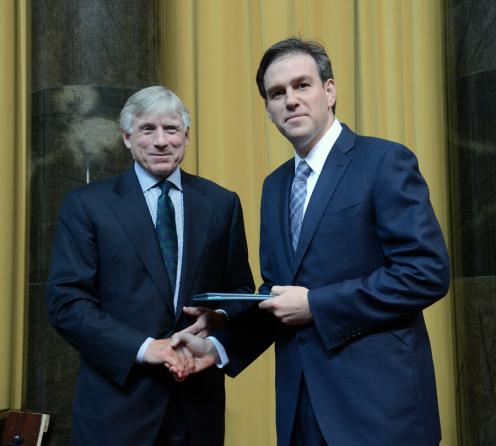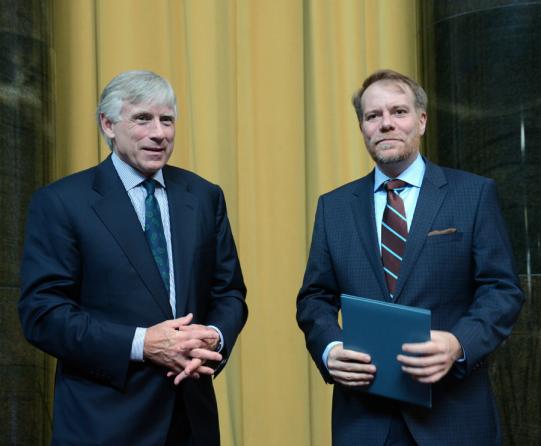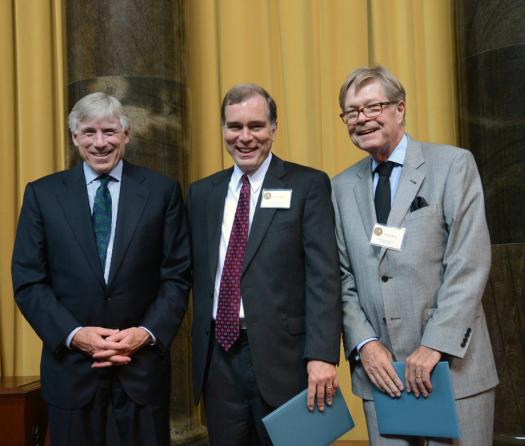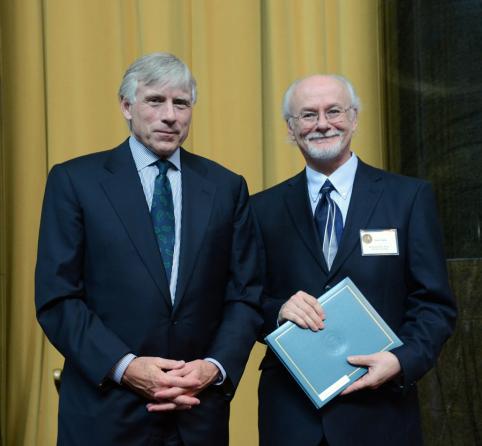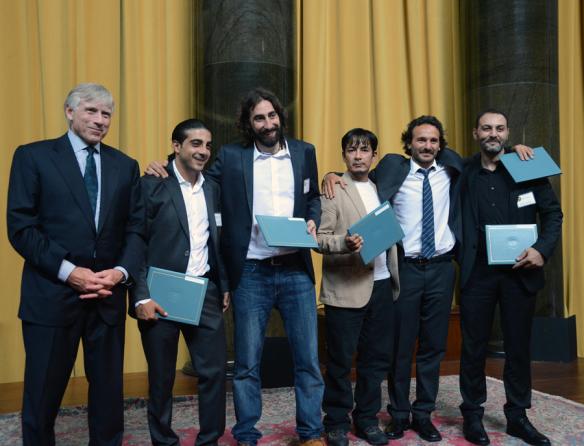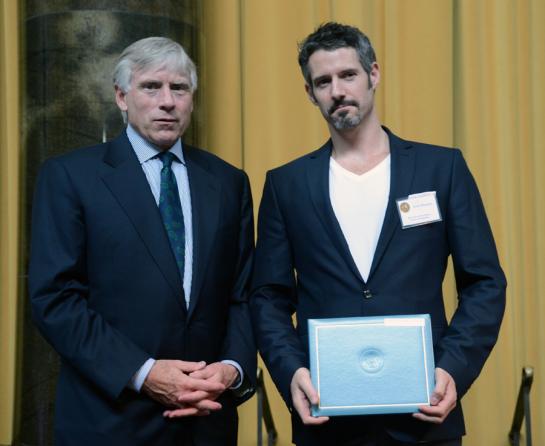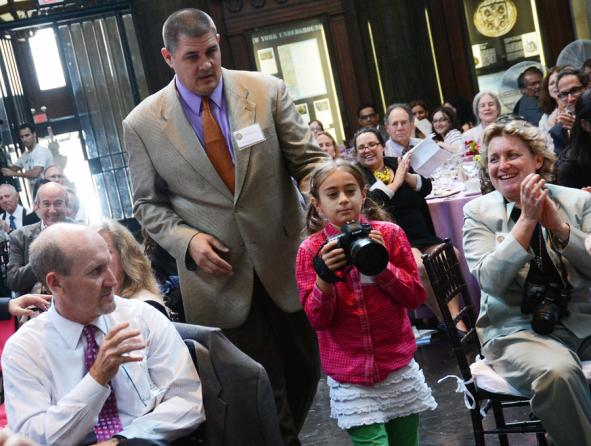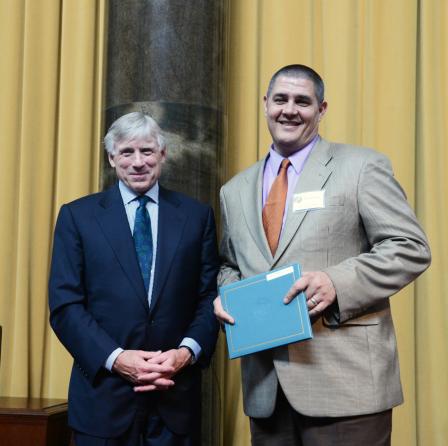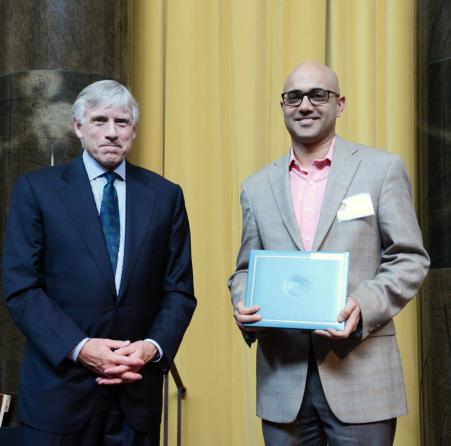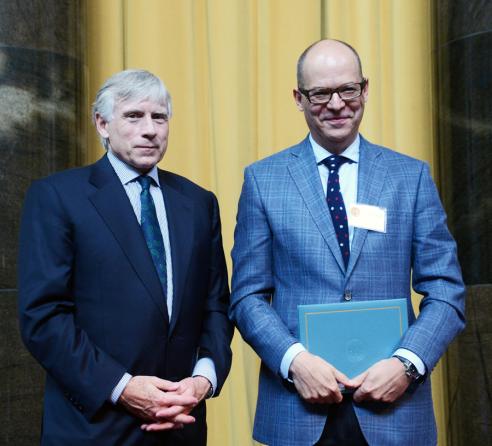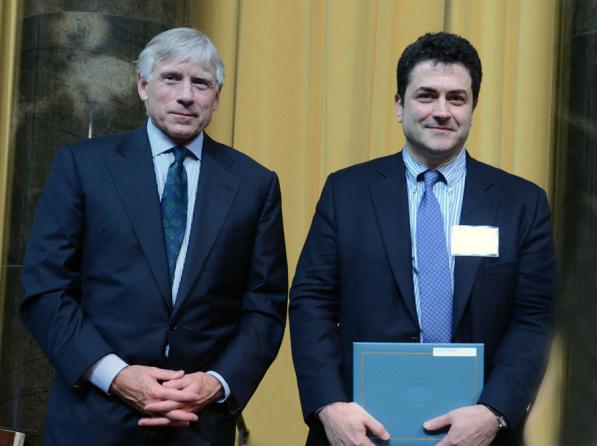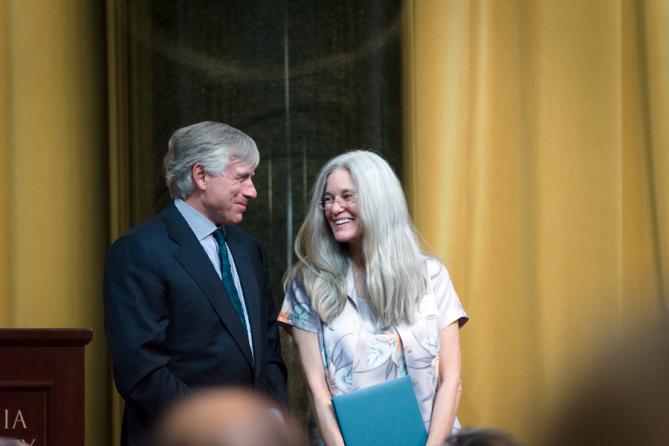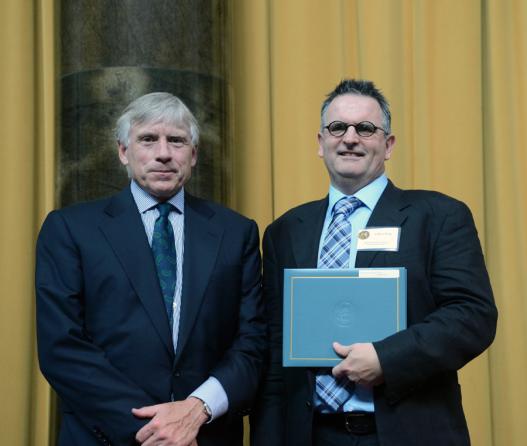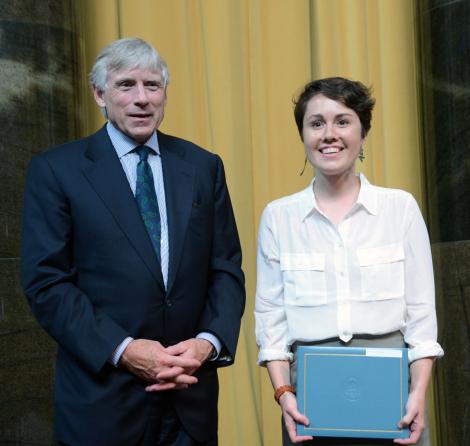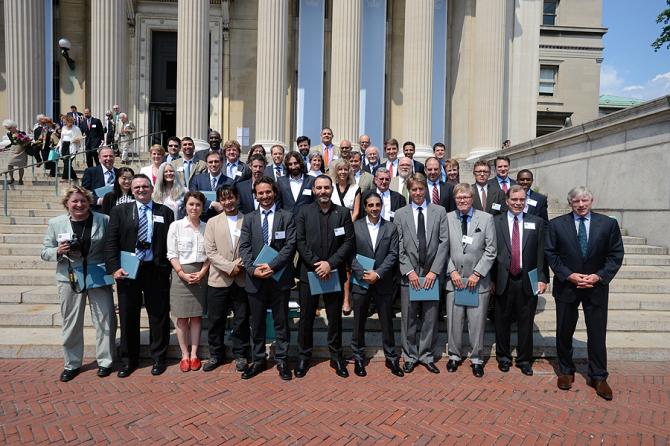2013 Pulitzer Prize Luncheon
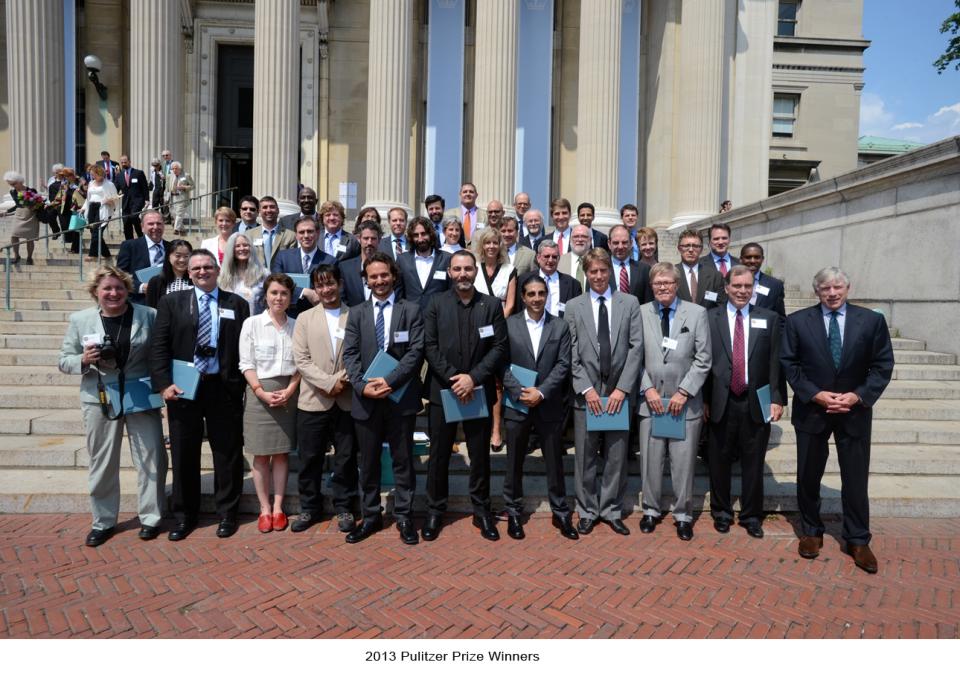
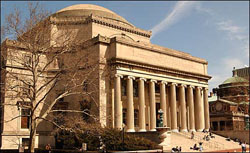
Low Library
Pulitzer Prizes are awarded at a luncheon ceremony at Columbia University in May, usually a full month after the winners have been announced. The annual luncheons began in 1984. Prior to that time Pulitzer Prize certificates, medals and checks were sent in the mail.
Remarks by Paul Tash
Chair, The Pulitzer Prize Board, 2013-2014
Good afternoon.
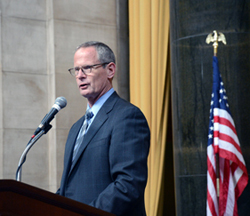
Paul Tash
Let me acknowledge the board’s debt of gratitude to our dedicated administrator, Sig Gissler, and his colleagues on the Pulitzer staff. It is no mean feat to keep this machinery humming. The cycle that results today in 21 Pulitzer Prizes started with 2,637 entries. Sig and his colleagues tended that process, as they do every year, with excellent judgment and steady good cheer.It is a profound honor to represent my colleagues on the Pulitzer Prize board at this celebration of extraordinary work in arts, letters and journalism.
The board is also deeply grateful to the 102 authors, scholars, musicians and journalists who signed up for Pulitzer Prize jury duty. As many of you know, Pulitzer Prize winners have to make it through two rounds of judging. In the first stage, the juries winnow the entries down to three finalists in each category.
As the Pulitzer board periodically reminds the world, we have the option – by an extraordinary majority – to consider an entry that has not been nominated as a finalist in a given category. Even so, we occasionally give no prize at all. For the first time during my eight years on the Pulitzer Board, we found winners in all 21 categories from among those finalists recommended by our juries. That result speaks not only to the quality of our winners – which is superb – but to the judgment of our juries.
That is not to say that the board’s decisions this year were quick or easy. They rarely are. Indeed, the quality of the discussion and debate is what makes serving on the Pulitzer Board such a pleasure, surpassed – in my experience – only by my day job and my family. When I was elected to the Pulitzer board, Tom Friedman welcomed me to the “world’s best book club,” and that description certainly fits. But I also have come to think of the board as a wonderfully genial debating society.
For two days each April, we gather in the Journalism School, around an oval table, in the room named for Joseph Pulitzer’s newspaper, the World. Without fail, the discussions reveal a deep reading of the finalists. Differences are respectful and friendly but full-throated, settled ultimately by a show of hands. Among board members, no score is kept, and no scores are settled. Any board member with a business or personal connection to a finalist is gently banished to the hallway for the discussion and the vote.
You may not always agree with the result. But in eight years on the board, I have never sniffed even a whiff of doubt about the integrity or the commitment of every board member to recognize the very best work. The process is as intellectually honest as humans can make it.
It is hard to win a Pulitzer Prize. This year, like every year, I left New York struck by the quality of many finalists who did not win a Pulitzer. This year that category included the winner of a National Book Award, a Harvard historian who has won the Pulitzer twice before, and a collection of short stories that won the richest international prize for such writing.
In journalism, the runners-up included an expose that fire retardants in furniture are mostly worthless and toxic, but an industry campaign of lies bamboozled government officials into requiring the chemicals anyway. Other finalists in journalism:
• Triggered a review of 20,000 criminal cases based on questionable forensic science, and got innocent people out of prison.
• Documented how a special police agency was failing to protect the residents of California’s homes for the profoundly disabled.
• Demonstrated how supposedly “non-profit” hospitals in North Carolina are running big surpluses while paying their executives seven-figure salaries and skimping on charity care.
What makes this year’s crop of Pulitzer finalists even more remarkable is the punishing economic pressure on most of the news organizations that have sponsored the work. My first Pulitzer board meeting was in 2006, a high-water mark in advertising revenues for American newspapers.
Since then, the combination of economic crisis and competition from digital alternatives has sent advertising revenues plummeting by more than half. Today, 15,000 fewer journalists have jobs at American newspapers than in 2006.
People outside our wonderful racket know that the commercial enterprises that have created most journalism are going through a rough stretch, so they ask whether the troubles have taken a toll on the Pulitzer Prizes. And the answer, to their surprise and a little to mine, is this: not one bit. The caliber of work that gets to the Pulitzer board is as strong as ever.
How to account for this paradox? Journalistic ambition burns both in organizations and individuals, despite the financial challenges. Bankruptcy may no longer carry particular stigma, but it remains a sign that an enterprise is under real financial strain. By my count, 11 of the 42 finalists in this year’s journalism categories come from journalists working at companies that have sought the shelter of bankruptcy protection. So do four of the 14 Pulitzer winners.
You can feel the strong pulse of journalistic ambition in organizations big and small. Toward one end of the scale, journalists from the New York Times won four Pulitzers this year. Like its other winners, the Times’ entry for international reporting was hugely demanding and expensive. Beyond the salaries and newsprint it took to publish that work, the incalculable cost may be in revenue lost, because the work imperils the company’s investments in China, a huge and growing market.
At the other end of the scale, our prize for national reporting goes to a start-up with a full-time staff of seven people and a history that goes back six years. An organization with neither much resource nor history takes the prize in a category that included all the usual suspects and plenty of heavyweights.
Now, we are about to turn to the most important business of today. The presentation of the Pulitzer Prizes is occasion not just for celebration, but also for inspiration. That is a point I will take from today’s ceremony, and indeed from all my experience on the Pulitzer board.
The work may be difficult. The odds may be long. The challenges may be great. So what? Every day presents an opportunity for excellence, and the chance to do work that makes a great difference. Wherever we labor in journalism, let us make it a labor of love.
Thank you very much.

